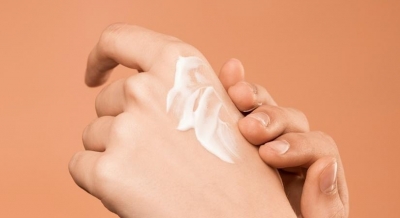The Beauty Industry is Turning to Sustainable Practices
By IANS | Published: December 7, 2021 12:48 PM2021-12-07T12:48:47+5:302021-12-07T13:00:35+5:30
New Delhi, Dec 7 The environmental damage that the beauty industry has been brushing under the carpet is ...

The Beauty Industry is Turning to Sustainable Practices
New Delhi, Dec 7 The environmental damage that the beauty industry has been brushing under the carpet is now open for the world to see. The consumer who was lured by various marketing tactics earlier is now conscious about each ingredient. They do not want to be piggybacked anymore by the beauty giants that caused this harm.
We are now aware that if we don't get our act together, our planet may not be worth inhabiting anymore. That awareness has today paved the way for the clean beauty movement. And one of the core principles of the clean beauty movement is sustainability
Sustainability is now slowly turning out to be a key factor in how discerning consumers choose brands they want to associate with. It is not about carelessly throwing words like compostable or recyclable into narratives, but about incorporating humane working conditions, equal pay, a transparent supply chain, and a closed-loop production system.
While glitzy marketing and sensorial had taken prime spot in the last few decades of personal care product popularity, today the clean beauty movement stands on the foundation of honesty and communication. While the word itself may be chosen as a form of greenwashing like its earlier counterpart "natural" from the previous era, sustainability means significantly more than that. It is a cultural shift that becomes a subliminal part of the company. It is a value that should be ingrained in the ethos of the brand and not superficially lace the covers.
While each brand has its measure of sustainability, it is good to see that the industry, on the whole, has begun the journey and has started making changes in the last year or so.
This call to action has been made possible by smaller brands whose primary mission revolves around this core value. It is slowly gaining momentum as bigger brands have begun to acquire smaller clean brands have themselves included the concept as a mission.
While big brands work on being more water and energy-efficient, smaller ones focus on ingredients per se, adapting and changing the chemistry of their cosmetics and producing vegan and cruelty-free products without harmful ingredients. They also avoid animal testing, alcohols, chemical sunscreens, silicones, fragrance and dye, parabens, phthalates, formaldehyde, SLS, and any other suspicious ingredients. They stick to ethically sourced, non-GMO, fair trade, aquatic friendly, and biodegradable ingredients.
Using renewable raw material has seen a popular rise, with bio-based oleo chemicals from plant and bacteria sources becoming an integral part of their formulations. Petrochemical ingredients derived from petrol, are a non-renewable and economically volatile resource. Many petrochemicals in conventional cosmetics are toxic pollutants that degrade the environment as well as our bodies. Sustainable brands look to low polluting ingredients. Today manufacturers know that consumers are not interested in the product but in the process, which has made them change to re natural and environmentally friendly emulsifiers, colorants, thickeners, and preservatives for their products. Another dreadful ingredient presents in most commercial products, microbeads,
Disclaimer: This post has been auto-published from an agency feed without any modifications to the text and has not been reviewed by an editor
Open in app